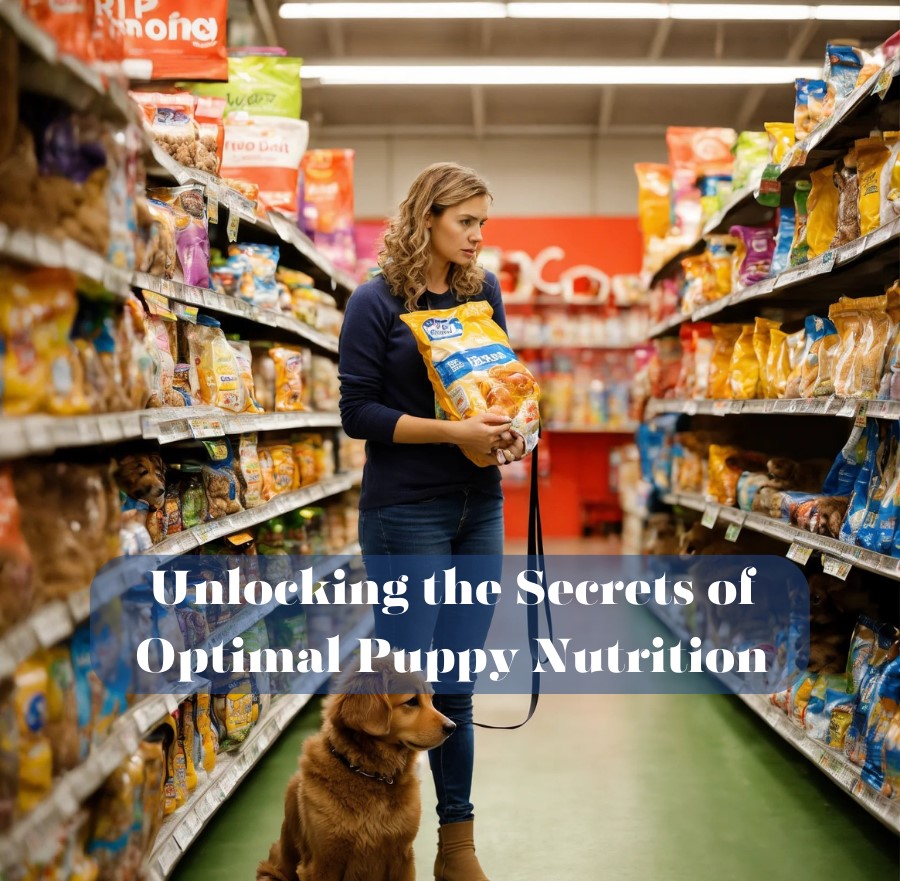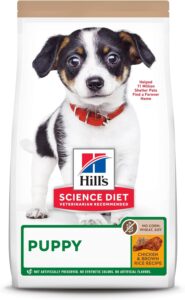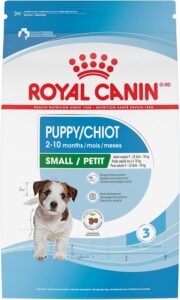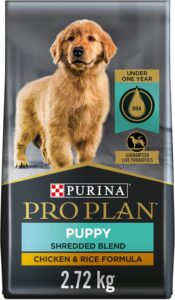
Puppy Feeding Guide: Navigating Nutritional Needs for Growth
Welcoming a new puppy into your home is an exhilarating experience, strikingly similar to the joys and challenges of bringing a new baby into the family. Both milestones are filled with unknowns and an endless list of questions. Just as new parents ponder over the best foods for their infant, the quantity and frequency of feedings, the safest sleeping positions, and the nuances of bath time, new puppy owners face a parallel set of queries.
What type of food is best for a growing puppy? How much should they eat, and how often? What sleeping arrangements ensure safety and comfort? How does one bathe a puppy without causing stress or fear? Each question marks a step on the journey of nurturing a healthy, happy, and well-adjusted new family member, highlighting the careful consideration and preparation required to foster a nurturing environment.
When it comes to raising puppies, it’s crucial to provide them with a well-rounded diet packed with essential proteins, fats, carbohydrates, vitamins, and minerals, as they tend to grow rapidly during their early stages of life. Unlike adult dogs, puppies require more calories and specific nutrients that support their development. The Association of American Feed Control Officials (AAFCO) provides guidelines for canine diets that meet the nutritional standards for different life stages.
Unlike adult dogs, puppies require more calories and specific nutrients that support their development. The Association of American Feed Control Officials (AAFCO) provides guidelines for canine diets that meet the nutritional standards for different life stages.
Here are the essential nutrients that puppies need:
- Proteins: Nutrients essential for muscle growth and repair.
- Fats: They provide energy and also help in the absorption of vitamins.
- Carbohydrates: They supply energy and assist in digestion.
- Vitamins and Minerals: Bone development, immune function, and overall health are all significantly impacted by this vital element.
Veterinarian-Recommended Dog Foods
If you have a pet, it is crucial to provide them with appropriate nutrition to help them develop and flourish. Many veterinarians recommend pet food brands that adhere to AAFCO guidelines and standards set by the Association of American Feed Control Officials. These guidelines ensure that pet food is nutritionally balanced and safe for animals.
Three popular brands that many veterinarians recommend for puppies include:
 Hill’s Science Diet Puppy: If you’re looking for puppy food that supports brain development, Hill’s Science Diet Puppy is a great option. This food is specially formulated to provide plenty of DHA, an essential omega-3 fatty acid vital for young puppies’ brain development.
Hill’s Science Diet Puppy: If you’re looking for puppy food that supports brain development, Hill’s Science Diet Puppy is a great option. This food is specially formulated to provide plenty of DHA, an essential omega-3 fatty acid vital for young puppies’ brain development. Royal Canin Puppy: Royal Canin Puppy offers tailored nutrition for puppies based on their size, breed, and sensitivity.
Royal Canin Puppy: Royal Canin Puppy offers tailored nutrition for puppies based on their size, breed, and sensitivity.
 Purina Pro Plan Puppy: Purina Pro Plan Puppy offers specialized formulas for puppies with specific needs, such as sensitive skin or stomach issues.
Purina Pro Plan Puppy: Purina Pro Plan Puppy offers specialized formulas for puppies with specific needs, such as sensitive skin or stomach issues.
It’s important to note that every puppy is unique, and what works for one puppy may not work for another. It’s always a good idea to consult your veterinarian to determine the best food for your puppy based on their needs and health requirements.
Treats and Supplements: Occasional treats like tinned fish in spring water are fine but watch for bones. Cooked pumpkin or raw grated carrot can boost fiber intake, improving bowel health. When feeding bones for dental health, ensure they are natural and appropriately sized to prevent choking or constipation.
Understanding Puppy Diet & Feeding Requirements

When selecting dog food, it’s crucial to consider their age, breed, and size. These factors can help you determine the most appropriate dog food for your pet and your lifestyle, as well as their level of physical activity. This will enable you to choose the correct amount of food to provide them with the necessary nutrients. Adequate nutrition is critical for your furry friend’s overall health and well-being. Regular checkups with a veterinarian can assist in assessing your dog’s dietary needs and general well-being.
Hydration is equally important: always provide fresh water. Assessing your dog’s body condition is more reliable than focusing on weight alone. A lean physique, where ribs are palpable and a waist is visible, is ideal for preventing obesity and associated health problems.
Age-Specific Dietary Considerations
- Puppies (8–16 weeks): Stick to high-quality commercial puppy food to support their growth, introducing new foods gradually to avoid upsetting their stomach. Raw diets are generally not recommended for young puppies due to their immature immune systems.
- Puppies (16+ weeks): You can introduce raw meaty bones to encourage chewing, aid dental health, and provide mental stimulation.
A deeper look into the Raw Food Diet
The journey into raw food diets for puppies is a path paved with the best intentions, aiming to mimic the natural and ancestral eating habits of wild dogs. This approach, celebrated for its holistic benefits, encompasses feeding puppies various uncooked meats, bones, fruits, and vegetables.
Well-crafted raw diet options include:
Their commitment to quality has made these brands renowned, incorporating whole-food ingredients that promise improved digestibility, enhanced energy, superior coat health, and optimal growth and development for puppies.
However, this narrative is full of its challenges. While commercial raw food products strive to mitigate risks by adhering to high safety standards, including processes like high-pressure pasteurization to eliminate pathogens, homemade raw diets often fall short. The latter can harbor dangerous pathogens like Salmonella and E. coli, leading to significant health risks for pets and humans.
Furthermore, achieving a balanced diet is crucial; without the careful formulation of reputable commercial products, homemade raw diets risk nutritional imbalances and deficiencies critical for puppy growth.
The debate extends to the broader implications of feeding raw, drawing a clear line between the controlled safety of commercial raw food products and the unpredictable nature of homemade alternatives. While commercial options offer a safer, nutritionally balanced approach aligned with the Association of American Feed Control Officials (AAFCO) guidelines, homemade raw diets pose risks—from bacterial contamination and nutritional imbalances to physical hazards and public health concerns.
Moreover, the American Veterinary Medical Association (AVMA) and AAFCO provide a backdrop of caution, underscoring the importance of nutritional adequacy and safety. These perspectives emphasize the necessity of consulting with veterinary professionals before embarking on or altering a puppy’s diet, ensuring that any chosen path, especially when considering raw food, aligns with established nutritional standards and safeguards the puppy’s well-being.
In essence, the allure of raw food diets reflects a desire to provide puppies with a diet that echoes the richness of nature’s offerings. Yet, the distinction between commercial raw food products and homemade raw diets is critical. Commercial options present a viable pathway to achieving the benefits of raw feeding, tempered by rigorous safety and nutritional standards.
In contrast, despite their appeal, homemade raw diets carry inherent risks that necessitate a cautious and informed approach. Prioritizing professionally prepared, AAFCO-compliant dog foods, whether raw or not, ensures that puppies receive the essential nutrients for optimal growth and development, navigating away from the potential perils of an improperly managed raw diet.
This article may contain affiliate links. As an Amazon Associate, I earn from qualifying purchases.